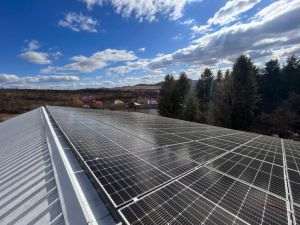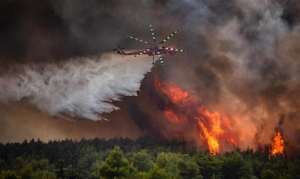April started with unbearable temperatures in certain regions of the world. According to a study, the unbearable heat wave that hit the Sahel region at the beginning of April is linked to "anthropogenic" climate change, scientists from the World Weather Attribution (WWA) network said. In early April, Mali and Burkina Faso experienced an exceptional heat wave, both in terms of duration and intensity, with temperatures exceeding 45 degrees Celsius, causing a large number of deaths in these countries . Scientists' observations and comparisons of temperature models "show that heat waves of the magnitude observed in March and April 2024 in this region would have been impossible" without global warming of 1.2 degrees Celsius, "of anthropogenic origin". The report states that an episode like the one that hit the Sahel region for five days in April occurs, in principle, only "once in 200 years". Heat waves are common in the Sahel at this time of the year, but the one in April 2024 "would have been colder by 1.4 degrees Celsius" in the region "if humans had not caused the planet to warm by burning fossil fuels", they assured the authors of the report. "These trends will continue to play out with future warming," they added. The researchers estimate that such a heat wave in Mali and Burkina Faso would be "1 degree Celsius warmer in a 0.8 degree Celsius warmer world" and would occur 10 times more frequently than in the current climate if the warming of the planet increases by 2 degrees Celsius.
The duration and severity of this heat wave caused an increase in the number of deaths and hospitalizations recorded in the two countries, according to WWA, although their populations "are acclimatized to high temperatures". Although it is "impossible" to accurately calculate the number of victims due to the lack of data available in the affected countries, "it is likely that there were hundreds or even thousands of other heat-related deaths", WWA states. "From April 1 to April 4, we noticed an increase in attendance at medical services," announced on April 5 Professor Djibo Mahamane Diango, head of the anesthesia department at the Gabriel Toure Hospital in Bamako, the capital of Mali, in a conference of the press. According to this doctor, his hospital registered in the first four days of April the arrival of 102 deceased persons, of whom more than 50% were "over 60 years old", compared to the 130 deceased persons who were registered on for the entire month of April in 2023. "Heat waves are among the deadliest natural disasters" and especially affect the elderly and young children, the WWA network recalled in its report. The April heat in Mali, which recorded a peak temperature of 48.5 degrees Celsius, and in Burkina Faso coincided with the fasting month of Ramadan and power cuts that limited the use of fans and air conditioners, also affecting the functioning of health services. In early April, the National Blood Transfusion Center in Bamako asked medical facilities to "suspend all non-essential transfusions" due to "daily and prolonged power outages of more than 12 hours" a day. Mali is experiencing power outages due to the dilapidated state of its power plants and the heavy debts burdening the national power company.





























































